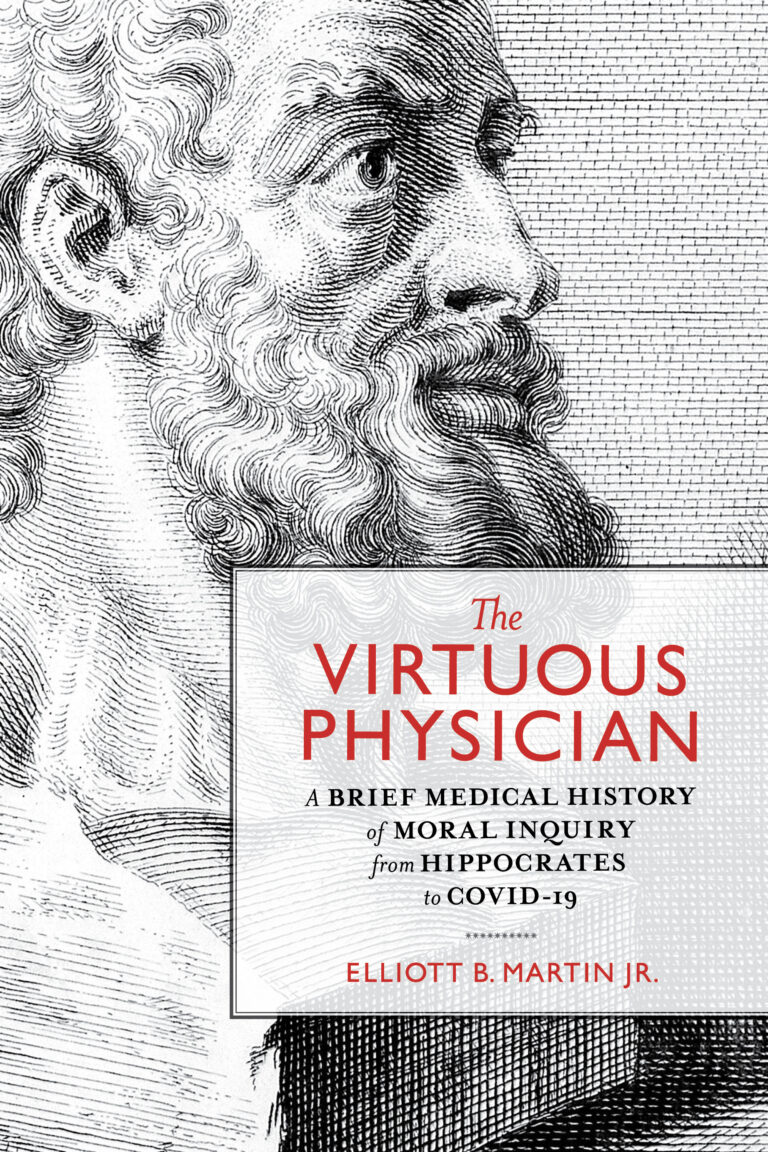In THE VIRTUOUS PHYSICIAN: A Brief Medical History of Moral Inquiry from Hippocrates to COVID-19, historical linguist turned psychiatrist Elliott Martin promises that “I try to avoid the catchphrase. I try to avoid the meme, the studies attempt at bad taste, at ‘going viral’. Rather, I play the more traditional role, the more scholarly role of historian, of linguist, of translator, of writer, of cross-cultural critic.” This Martin, accomplishes—in spades. His book is only 110 pages with four chapters, but the first chapter is 73 pages long and carries the title “The Virtuous Physician: A New Translation of a Pseudo-Hippocratic Text and Its Implications for the History of Moral Inquiry.” Which is how they used to name monographs back in the 19th century.
Martin’s thesis is that medicine is more a branch of the humanities than the sciences. In his first extended essay, he makes the case that the ancient document called the “reflects a critical turning point in the history of religion and medicine both.” Noting that the famous “Do no harm” oath was never written by Hippocrates and was first used in 1508 in the graduation ceremony at the University of Wittenberg, he lays out the historical and cultural; background to the Precepts in often excruciating detail. He provides his own translation of the text from ancient Greek, along with an analysis in which he attempts to “place the work in its broader context at a literal crossroads in the history of moral inquiry.” (Presumably, he means “literary” rather than “literal”.) Nor does Martin, who offhandedly boasts that he studied six ancient languages, hesitate to throw around linguistics terms, writing phrases like “replacing the aorist tense with the perfect, using numerous participial phrases” and “the work is indeed a cento. However, there are two more hapax legomena.”
The other three essays are similarly ponderous. In the second piece titled “The Greeks May Have the Last World but Who Has the First?” he traces the origins of one word—phonetically pronounced as “ya-tros”, which means “physician”. The third essay, “An Archaeology of Disease” examines a document on plague by the historian Thucydides, while the final essay, “Crisis: The Existential Fallout of COVID-19” examines the pandemic through a comparison with Albert Camus’ novel The Plague. Psychiatrist Martin, whose Ph.D. is in Near Eastern languages and cultures, makes extensively detailed arguments, often including historical and linguistic facts that, while shedding light on obscure issues, tend to bog down his four essays. It’s thus ironic that, in the Introduction to his collection, he takes aim at his more media-friendly medical colleagues, asserting that in the “warm fuzziness of their own self-absorption… these self-proclaimed ‘thought leaders’ are merely blowing hot air into the magic mirror.”
For those with an obsessive interest in historical linguistics and abstract philosophy, historical linguist turned psychiatrist Elliott Martin’s detail-dense THE VIRTUOUS PHYSICIAN: A Brief Medical History of Moral Inquiry from Hippocrates to COVID-19, will be a delight to read.
~Kevin Baldeosingh for IndieReader


